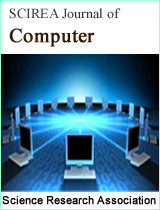Reducible Relations between/among Aristotle’s Modal Syllogisms
DOI: 221 Downloads 13945 Views
Author(s)
Abstract
All valid Aristotle’s modal syllogisms can be obtained by adding modal operators to 24 valid classical syllogisms. On the basis of the 20 valid modal syllogisms obtained by adding modal operators to valid classical syllogisms AAA-1 and EAE-1, this paper not only shows that the validity of the other 326 Aristotle’s modal syllogisms can be derived by making full use of truth definition and symmetry of Aristotelian quantifiers in generalized quantifier theory, and propositional deformation rules in proof theory, but also shows that there are reducible relations between/among Aristotle’s modal syllogisms. These innovative results are embodied in the 29 theorems proposed in this paper. The research methods used in the paper provide a simple and reasonable mathematical model to study generalized modal syllogisms. It is hoped that these innovative achievements will make contributions to further research on Aristotle’s and generalized modal syllogistic logic, and to promote knowledge representation and knowledge reasoning in computer science, and natural language information processing.
Keywords
generalized quantifier theory; Aristotle’s modal syllogisms; reducible relations; validity
Cite this paper
Xiaojun Zhang,
Reducible Relations between/among Aristotle’s Modal Syllogisms
, SCIREA Journal of Computer.
Volume 5, Issue 1, February 2020 | PP. 1-33.
References
| [ 1 ] | A. Chagrov and M. Zakharyaschev. 1997, Modal Logic, Oxford: Clarendon Press. |
| [ 2 ] | B. F. Chellas, 1980, Modal Logic: an Introduction, Cambridge University Press. |
| [ 3 ] | P. T. Geach, 1964, “Review of McCall (1963)”, Ratio, 6: 200-206. |
| [ 4 ] | P. T. Geach, 1972, Logic Matters, Oxford: Blackwell, 1972. |
| [ 5 ] | J. Łukasiewicz, 1957, Aristotle’s Syllogistic: From the Standpoint of Modern Formal Logic, Oxford: Clarendon Press, second edition. |
| [ 6 ] | F. Johnson, 1989, “Models for modal syllogisms”, Notre Dame Journal of Formal Logic, 30: 271-284. |
| [ 7 ] | F. Johnson, 1993, “Modal ecthesis”, History and Philosophy of Logic, 14: 171-182. |
| [ 8 ] | F. Johnson, 1995, “Extended gergonne syllogisms”, Journal of Philosophical Logic, 23: 553-567. |
| [ 9 ] | F. Johnson, 2004, “Aristotle’s modal syllogisms”, Handbook of the History of Logic, 1: 247-307. |
| [ 10 ] | M. Malink, 2006, “A reconstruction of Aristotle’s modal syllogistic”, History and Philosophy of Logic, 27: 95–141. |
| [ 11 ] | M. Malink, 2013, Aristotle's Modal Syllogistic, Cambridge, MA: Harvard University Press. |
| [ 12 ] | S. McCall, 1963, Aristotle’s Modal Syllogisms, Studies in Logic and the Foundations of Mathematics, North-Holland, Amsterdam. |
| [ 13 ] | R. Patterson, 1990, “Conversion principles and the basis of Aristotle’s modal logic”, History and Philosophy of Logic, 11: 151-172. |
| [ 14 ] | S. Peters and D. Westerståhl, Quantifiers in Language and Logic, Oxford: Claredon Press, 2006. |
| [ 15 ] | P. Thom, 1996, The Logic of Essentialism: An Interpretation of Aristotle’s Modal Syllogistic, (Synthese Historical Library 43), Dordrecht: Kluwer. |
| [ 16 ] | S. K. Thomason, 1993, “Semantic analysis of the modal syllogistic”, Journal of Philosophical Logic, 22: 111–128. |
| [ 17 ] | S. K. Thomason, 1997, “Relational models for the modal syllogistic”, Journal of Philosophical Logic, 26: 129–1141. |
| [ 18 ] | J. van Benthem, 1984, “Questions about quantifiers”, Journal of Symbol Logic, 49(2): 443- 466. |
| [ 19 ] | D. Westerståhl, 1989, “Aristotelian syllogisms and generalized quantifiers”, Studia Logica, XLVII(4): 577-585. |
| [ 20 ] | X. Zhang, 2011,A Study of Properties of Generalized Quantifiers, Ph.D. dissertation, Chinese Academy of Social Sciences. (in Chinese) |
| [ 21 ] | X. Zhang, 2014, A Study of Generalized Quantifier Theory, Xiamen University Press. (in Chinese) |
| [ 22 ] | X. Zhang and S. Li, 2016, “Research on the formalization and axiomatization of classical syllogisms”, Journal of Hubei University (Philosophy and social sciences), 6: 32-37. (in Chinese) |
| [ 23 ] | X. Zhang, Screening out all Valid Aristotelian Modal Syllogisms, to appear |

